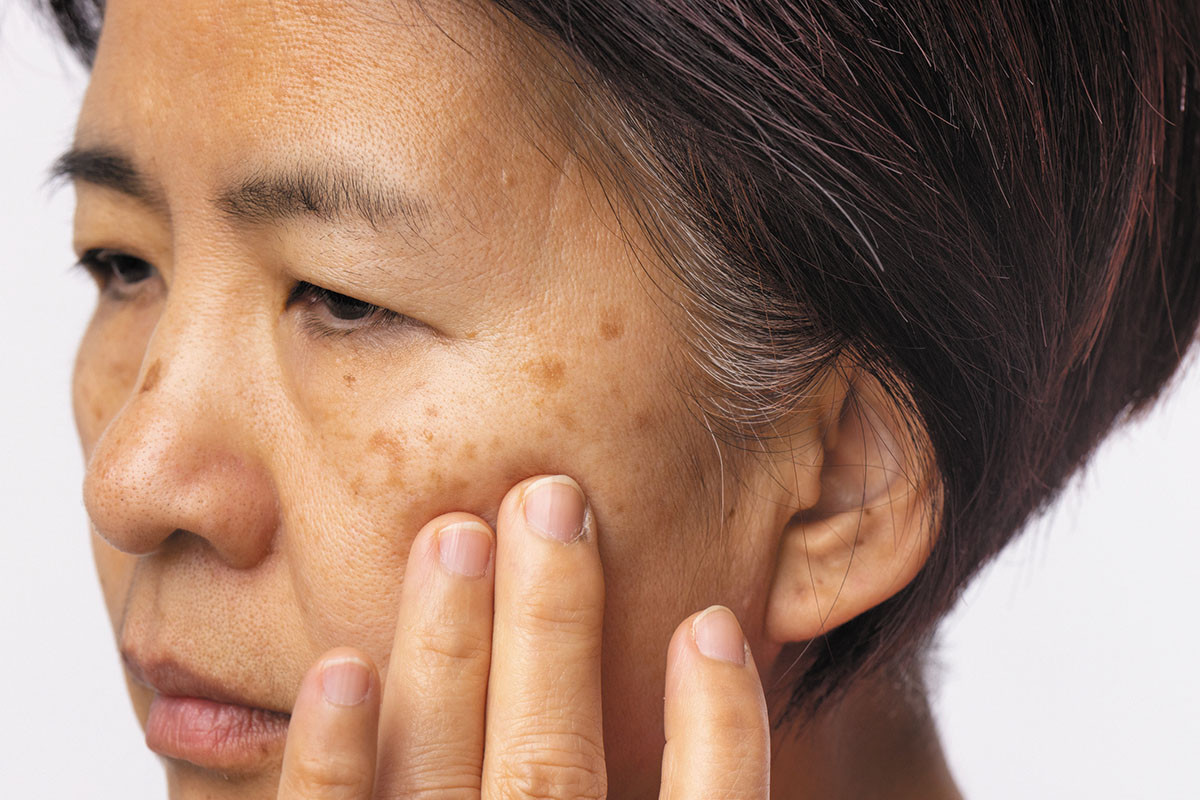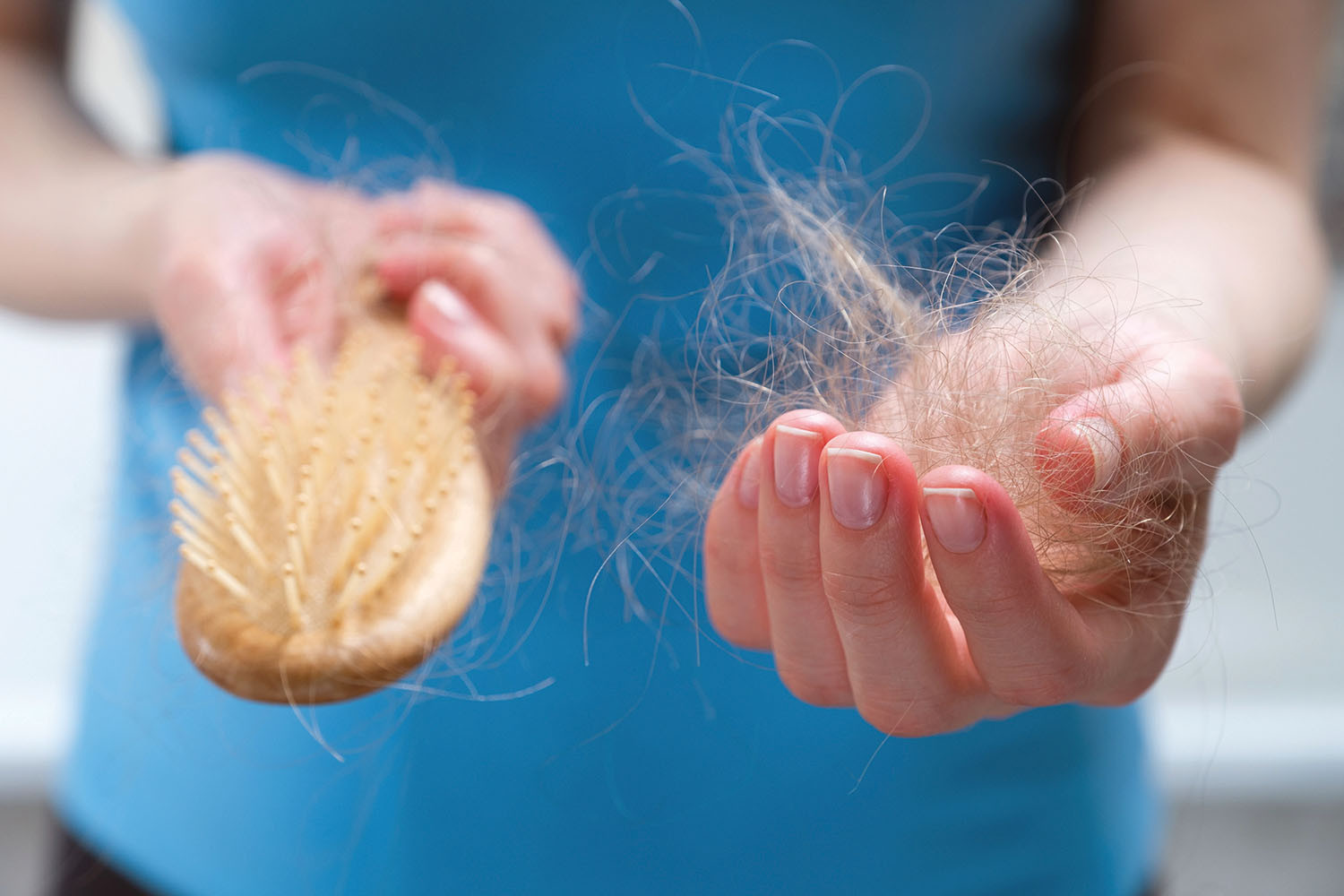
Trying to lose weight? Be careful not to lose muscle

Is your skin problem actually an autoimmune condition?

People with diabetes face higher risk of hearing loss

Antibiotic-free fixes for recurrent UTIs

Musculoskeletal syndrome of menopause: When menopause makes you ache all over

When can older women stop getting mammograms?

To lose weight, especially harmful belly fat, combine diet and exercise

Can men hold off on treating recurring prostate cancer?

The 7 types of rest and why we need them all

What are the early warning signs of cervical cancer?
Skin and Hair Archive
Articles
Considering collagen drinks and supplements?
Celebrities and influencers claim that consuming collagen could have miraculous benefits for skin, hair, and nails. But what does the science say?
Fighting the most common skin cancers
The most common non-melanoma skin cancers are basal cell carcinomas and squamous cell carcinomas. They aren’t usually life-threatening, but they can be quite dangerous. They can bleed, hurt, and eat away at skin. If left untreated, they can erode through important structures like the nose, eyes, bones, or muscles. If they become very large, they can spread, and in rare cases cause death. Treatment ranges from scraping out skin cancers with surgical tools to Mohs surgery, a procedure that spares as much healthy skin as possible.
A mask that's hard to shed
Melasma, which causes dark patches on the face, is far more prevalent in women than in men. Dubbed the "mask of pregnancy," melasma triggers include not only pregnancy but also hormonal fluctuations, genetics, and sun exposure. People with darker skin are more prone to it. Melasma is typically treated with topical products that lighten the skin or slough off cells. Laser treatments and chemical peels, however, may worsen melasma. Sunscreen use can help prevent flares.
Why won't my hives go away?
Hives are red, itchy welts that crop up on the skin. Allergic reactions and stress, among other triggers, can cause episodes of hives, which typically last several days to a couple of weeks. Cases that last six weeks or longer may be autoimmune hives.
It's not too late to save thinning hair
Treatment for hair loss depends on the type of hair loss a person is experiencing. Sudden hair loss often gets better on its own once an underlying condition is treated. Gradual hair thinning caused by aging or genetics may stop or start to reverse with topical medications, oral medications, supplements, laser light treatments, or injections of platelet-rich plasma. And for any of these approaches, the key is starting them as soon as hair loss is detected. Once hair follicles stop working, the only option to restore hair is hair transplant surgery.
Eating disorders in midlife
By age 40, one in five women has dealt with an eating disorder, twice the proportion of women known to be affected by age 21. Risks for anorexia, bulimia, and binge eating can rise at midlife due to job stressors, an empty nest, and dating again after divorce or widowhood. Health effects can include bone loss, heart problems, lung conditions, gastrointestinal issues, diabetes, and skin breakdown. Signs of an eating disorder include dramatic weight fluctuations, excessive exercising, and preoccupation with weight, calories, and body size and shape.
More fallout from COVID-19
Hair loss is common in the months after recovering from COVID-19 infection. It can also happen in people with long COVID or because of mental stress from the pandemic. COVID-related hair loss is a form of telogen effluvium, a condition in which normal hair shedding ramps up after intense physical or mental trauma. Hair regrowth usually takes six to 12 months. People can speed and support hair regrowth by avoiding harsh hair habits, checking nutrient levels, and applying minoxidil (Rogaine) to the scalp.
Harvard Health Ad Watch: A new injection treatment for eczema
Existing treatments for a type of eczema called atopic dermatitis include creams and ointments, some containing steroids. An ad for a new injected medication pitches its skin-clearing capability, but that isn't the whole story.
Beyond hot flashes
Around menopause, a decline in estrogen can trigger low-grade inflammation that leads to unexpected symptoms from head to toe. Symptoms can affect the digestive tract, skin, joints, eyes, ears, and heart, among other areas. A 2022 study found that estrogen loss can even fuel the jaw pain known as temporomandibular disorder. A year or longer can pass before many women connect symptoms with menopause. Women can take lifestyle measures to lower inflammation, such as eating more fruits and vegetables, avoiding processed foods, and exercising.
Poison ivy: Scratchin' like a hound?
Misconceptions about poison ivy are common — from when you can get it to how you might get it, and the best ways to treat it. Knowing the facts can help you avoid it, or treat it properly if you are exposed to it.

Trying to lose weight? Be careful not to lose muscle

Is your skin problem actually an autoimmune condition?

People with diabetes face higher risk of hearing loss

Antibiotic-free fixes for recurrent UTIs

Musculoskeletal syndrome of menopause: When menopause makes you ache all over

When can older women stop getting mammograms?

To lose weight, especially harmful belly fat, combine diet and exercise

Can men hold off on treating recurring prostate cancer?

The 7 types of rest and why we need them all

What are the early warning signs of cervical cancer?
Free Healthbeat Signup
Get the latest in health news delivered to your inbox!
Sign Up











